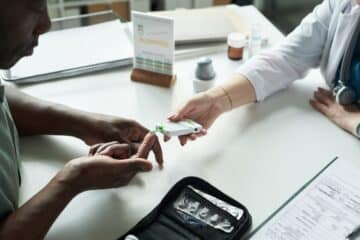R.E.S.T.: How to Sleep Better at Night
Do you have trouble falling asleep and remaining asleep? Find yourself waking up repeatedly throughout the night? Do you constantly toss and turn? And, do you feel fully rested when you wake up in the morning? If you are a recovering addict, this may be more common for you that for non-addicts. There is a scientific reason for this – alcohol and drug addictions disrupt many of the body’s normal biological functions. Restoring balance and a healthy sleep pattern in recovery can take some time. But the better you sleep, the better you feel, and the more likely you are to stay sober.
D’Amore Healthcare’s residential treatment center addresses the need for better sleep with a 7 day a week, 7am-10pm schedule. Patients challenge themselves through cognitive, mood and behavior projects, groups, discussions, and individual written work. After a full day that includes exercise and minimal screen time, patients are ready to reset and repair as they get into a pattern of rest and rise.
To create healthy sleep habits in recovery, all you have to do is remember this acronym: R.E.S.T.
R=Ritual
Do the same thing every night before bed, whether it’s taking a shower or bath, reading a few pages of a novel, praying or meditating, etc. Repeat your ritual nightly to train your body it’s time to shut down.
E=Exercise
People who exercise report better sleep than those who don’t. Exercise not only helps you sleep better, it offers other benefits like relapse prevention! Make sure exercise is part of your recovery program.
S=Schedule
Pick a bedtime and stick to it. If this means not going to coffee after an evening 12-step meeting, or missing that late-night TV special, then so be it. Being consistent with your bedtime can help you sleep better.
T=Technique
There are a number of simple techniques you can use to get a better night’s sleep and avoid disruptions. Try turning off your phone or TV, avoiding caffeine or nicotine late in the day, avoiding difficult evening conversations that are emotional or stressful, darkening your room, improving your bed and pillows, blocking out the noise.
Getting your sleeping patterns under control are important in recovery.
Insomnia and sleeplessness have a major effect on mood and depression. Also, if you are getting the recommended 7-10 hours of sleep nightly and still feel significant tiredness during the day, you may have a sleep disorder. Furthermore, sleep disorders include Sleep Apnea and Narcolepsy. If you suspect you may have a sleep disorder, see a doctor and be sure to tell them you are in recovery.
Mental illness and addiction affect millions of Americans each year, yet many do not seek help. Why? They fear the stigma associated with it.
Also, don’t let fear get in the way or your recovery. Call D’Amore Healthcare at 714-375-1110 or contact us online to learn about our caring, residential rehabilitation center in southern California.





































